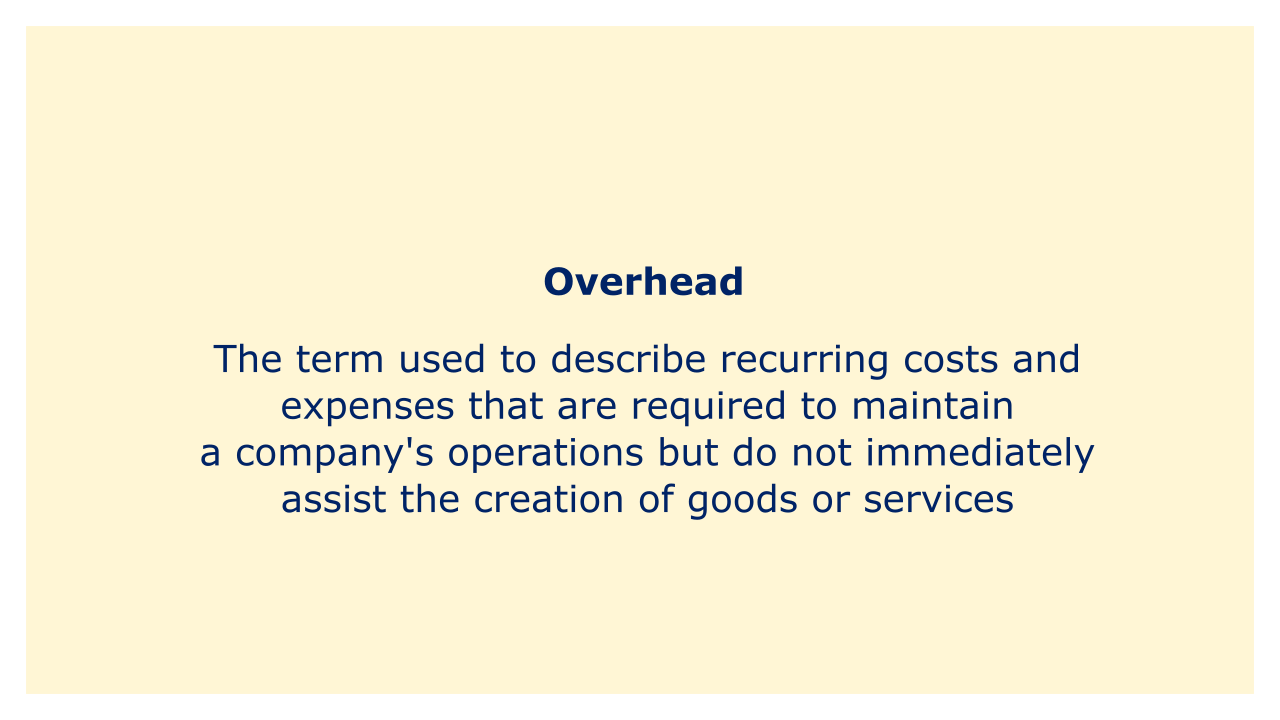 |
| Image: Moneybestpal.com |
In the world of finance, overhead is the term used to describe recurring costs and expenses that are required to maintain a company's operations but do not immediately assist the creation of goods or services. The majority of overhead expenditures are fixed and include rent, utilities, insurance, administrative staff wages, and depreciation of equipment and buildings in addition to other costs like these.
Businesses must take into account overhead expenditures because they affect the firm's overall profitability. Overhead expenses must be taken into account when calculating the true cost of producing a good or service in order to establish the overall cost of production. The cost of products sold is what this is called (COGS).
According to a predetermined cost allocation strategy, overhead expenses are often distributed across goods or services. For instance, overhead expenses might be distributed in accordance with the number of units produced or the amount of direct labor employed during manufacturing.
Even though they are important for a company to run, overhead costs can significantly affect the bottom line. Businesses can boost their profitability and cut costs by efficiently managing overhead expenses. Implementing cost-saving initiatives, such as lowering energy usage, renegotiating supplier contracts, or optimizing administrative procedures, are just a few strategies for minimizing overhead costs.
Businesses may also think about outsourcing specific tasks or employing technology to automate administrative procedures in an effort to save overhead costs in addition to managing overhead costs. Businesses can boost their financial performance and competitiveness in the market by lowering overhead costs.
